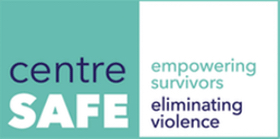HOLIDAYS, FAMILY GATHERINGS BRING ON ADDITIONAL STRESS FOR SOME
While commercial advertisements and greeting cards may paint the holiday season as a picture-perfect time of year, the reality is that the holidays are a time of anxiety and sadness for a lot of people.
For survivors of sexual assault, the holidays — with the busyness and expectations they bring — can be particularly stressful.
Some survivors feel alone as they deal with their trauma; a trauma they may not have talked about with other people. Others have post-traumatic stress disorder and are dealing with a vast array of physical, emotional and cognitive symptoms that accompany PTSD.
For survivors of incest, there may be additional stressors: the possibility of seeing their abusive relative, tension with relatives who don’t want to accept that the abuse occurred, or inner conflict because the survivor still loves the relative but is angered and hurt by the abuse that occurred.
At this busy and sometimes emotional time of year, it is important for survivors of sexual assault to practice self care. Relaxing activities such as baths, quiet walks, time with friends, and special times with children or other special people in your life is critical to your health.
It’s easy to forget self-care skills in the hustle and bustle of the holidays, but they’re particularly critical during times of high stress.
Some survivors of child sexual abuse put additional pressure on themselves to provide their children with perfect holidays — holidays very different from the ones they remember. It’s healthier, however, to simply enjoy time together with your children rather than creating unrealistic expectations for your family’s holidays.
For incest survivors, it’s critical to know your limits and establish boundaries with your family ahead of time. If you don’t want to participate in the family celebration, explain your feelings to a family member who understands.
If you want to be with your family, set boundaries beforehand. For example, if you’re uncomfortable sitting next to your abusive relative at the family dinner table, find a seat at the other end of the table.
It may take work and self-reflection, but developing a positive outlook about the holidays will help improve your mood. Try to control your negative thoughts by remembering happy times in your life or things for which you’re grateful today, rather than thinking about the abuse.
Also, remember that while “perfect” holidays aren’t attainable, fun times are possible if you focus on sharing time with people you care about.
If your family isn’t supportive, find “family” in friends you love and who love you. We don’t have a choice in the family we’re born into, but as adults we have the choice to create a family of people we trust and cherish.
This holiday season, take the time to care for yourself. It’s the best gift you’ll give or receive.
Ways that you can take care of yourself
- If you’re a survivor of incest, here are a few tips for easing your anxiety over the holidays.
- Remember to practice self care by doing activities that relax you.
- Know your limits.
- Establish boundaries with your family ahead of time.
- Be sure a knowing relative or friend is with you for support at family functions.
- Have a plan for how you’ll excuse yourself if things becomes too intense.
- If you think you’ll be alone over the holidays, find healthy ways to occupy yourself, such as volunteering at a community meal or homeless shelter.
by Adam Kulikowski, PCAR






